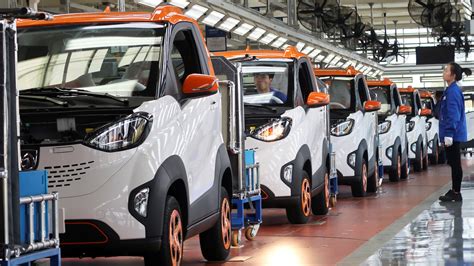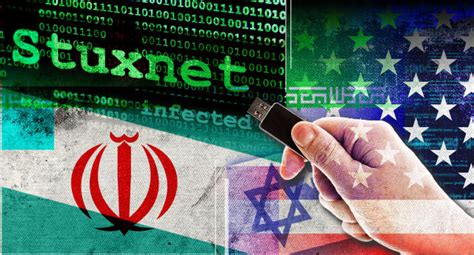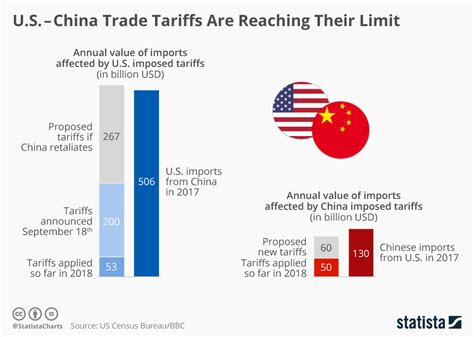
Brazil’s burgeoning electric vehicle (EV) market is facing a surge of affordable Chinese EVs, raising concerns about potential trade conflicts and the future of local automotive manufacturing. The influx is driven by Chinese automakers like BYD and GWM (Great Wall Motors), who are rapidly expanding their presence with competitively priced vehicles and ambitious investment plans.
The aggressive market entry of Chinese EV manufacturers into Brazil has ignited a debate over fair competition, domestic industry protection, and the long-term economic implications for Latin America’s largest economy. Brazil, eager to decarbonize its transportation sector, welcomes the technological advancements and lower prices that Chinese EVs offer. However, the scale and speed of the Chinese expansion are causing alarm among local automakers and policymakers.
“The speed at which Chinese manufacturers are entering the Brazilian market is unprecedented,” says automotive analyst Eduardo Oliveira. “While competition is generally beneficial, the sheer volume of imports and the price disparity raise legitimate concerns about the survival of domestic players.”
The Chinese Offensive: BYD and GWM Lead the Charge
BYD and GWM are at the forefront of the Chinese EV invasion. BYD, already a global EV giant, is investing heavily in Brazil, planning a large-scale manufacturing hub in Bahia. This complex, slated to begin production between late 2024 and early 2025, will encompass multiple production lines for electric vehicles and battery packs, with an initial planned capacity of 150,000 vehicles per year, potentially scaling up to 300,000. BYD’s strategy involves not just importing vehicles but also establishing a local manufacturing base, aiming to become a long-term player in the Brazilian market. The company plans to launch several new EV models tailored to the Brazilian consumer base, including electric sedans, SUVs, and potentially electric buses and trucks. This local manufacturing capability could significantly reduce import costs and strengthen BYD’s competitiveness.
GWM, another major Chinese automaker, has also made significant strides in Brazil. They acquired a former Mercedes-Benz factory in Iracemápolis and are investing substantially in upgrading the facility for EV and hybrid vehicle production. Their initial focus is on hybrid SUVs, leveraging Brazil’s strong ethanol fuel infrastructure to promote hybrid technology as a bridge to full electrification. GWM’s strategy is more nuanced, initially emphasizing hybrid vehicles while gradually introducing fully electric models. This approach aligns with Brazil’s current market conditions, where hybrid vehicles enjoy certain tax incentives and consumer acceptance. The company plans to export vehicles from its Brazilian plant to other Latin American markets, positioning Brazil as a regional production hub.
Both BYD and GWM are employing aggressive pricing strategies to gain market share. Their vehicles often undercut the prices of comparable models from established automakers, both domestic and international. This price competitiveness is a key factor driving their rapid sales growth and attracting Brazilian consumers who are increasingly conscious of both environmental concerns and affordability.
The Brazilian Response: Balancing Decarbonization and Industrial Protection
The Brazilian government faces a complex dilemma. On one hand, it is committed to reducing carbon emissions and promoting the adoption of electric vehicles. Chinese EVs offer a cost-effective solution to accelerate this transition, making electric mobility accessible to a wider segment of the population. The influx of Chinese investment also creates jobs and stimulates economic activity.
On the other hand, the government must protect its domestic automotive industry, which employs hundreds of thousands of people and contributes significantly to the national economy. The rapid displacement of locally produced vehicles by cheaper Chinese imports could lead to job losses, factory closures, and a decline in Brazil’s industrial base.
Several policy options are being considered to address this challenge. One approach is to offer incentives for local EV production, such as tax breaks, subsidies, and preferential access to credit. This would level the playing field and encourage domestic automakers to invest in electric vehicle technology. Another option is to impose tariffs or quotas on imported EVs, protecting domestic manufacturers from unfair competition. However, this could raise prices for consumers and slow down the adoption of electric vehicles.
The Brazilian government is also exploring ways to promote local content in EV manufacturing. This would encourage Chinese automakers to source components and materials from Brazilian suppliers, creating jobs and supporting the development of a domestic EV supply chain. This could involve setting minimum local content requirements for vehicles produced in Brazil, gradually increasing the percentage over time. The government is also investing in research and development to foster innovation in electric vehicle technology and battery production.
“We need a balanced approach that promotes both decarbonization and industrial development,” says Brazilian Trade Minister Roberto Almeida. “We welcome foreign investment, but we must also ensure that our domestic industry can compete on a level playing field.”
Trade War Fears: Echoes of the Past?
The situation in Brazil mirrors similar concerns in other countries, including the United States and Europe, where Chinese EV manufacturers are rapidly expanding their presence. In the US, tariffs and other trade barriers have been imposed on Chinese vehicles to protect domestic automakers. The European Union is also considering similar measures, amid concerns about unfair competition and state subsidies.
The potential for a global trade war over electric vehicles is a real concern. If countries erect protectionist barriers to shield their domestic industries, it could stifle innovation, raise prices, and slow down the transition to electric mobility. A more collaborative approach, involving international cooperation and fair trade practices, is needed to ensure a sustainable and equitable transition to a low-carbon transportation sector.
The Brazilian experience will be closely watched by other developing countries that are also seeking to decarbonize their transportation sectors. The choices that Brazil makes in the coming years will have significant implications for the global EV market and the future of international trade. The balancing act between embracing affordable EV technology and protecting domestic industries represents a critical challenge for policymakers worldwide.
The Impact on Consumers: Affordability vs. Quality
For Brazilian consumers, the influx of Chinese EVs presents both opportunities and challenges. On one hand, the lower prices of Chinese vehicles make electric mobility more accessible to a wider segment of the population. This can help reduce transportation costs and improve air quality in urban areas.
On the other hand, consumers may have concerns about the quality, reliability, and safety of Chinese EVs. Some may also prefer to support domestic manufacturers and contribute to the local economy. It’s critical for consumers to research and compare different EV models, considering factors such as range, performance, features, and after-sales service.
Consumer advocacy groups in Brazil are calling for greater transparency and consumer protection. They are urging the government to ensure that all EVs sold in Brazil meet minimum safety standards and that consumers are provided with accurate information about the vehicles’ performance and environmental impact. They are also advocating for incentives to encourage the purchase of domestically produced EVs, supporting local jobs and innovation.
The Long-Term Outlook: A Transformed Automotive Landscape
The Brazilian automotive market is undergoing a profound transformation. The rise of electric vehicles, the increasing presence of Chinese manufacturers, and the evolving policy landscape are reshaping the industry in fundamental ways.
In the long term, Brazil is likely to become a major hub for EV production and innovation. The country’s abundant natural resources, including lithium and other battery materials, its large domestic market, and its strategic location in Latin America make it an attractive destination for EV investment.
However, the transition will not be without its challenges. Brazil must address issues such as infrastructure development, workforce training, and regulatory harmonization to fully realize its potential as an EV leader. The government needs to invest in charging infrastructure to support the growing number of electric vehicles on the road. It also needs to develop training programs to equip workers with the skills needed to manufacture and maintain electric vehicles.
The future of the Brazilian automotive industry will depend on the ability of policymakers, automakers, and consumers to adapt to these changes and work together to create a sustainable and competitive EV ecosystem. The success of this transformation will have far-reaching implications for Brazil’s economy, environment, and society.
Expansion on Brazil’s Automotive History and Context
To fully understand the current situation, it’s crucial to consider the historical context of Brazil’s automotive industry. Brazil has a long history of vehicle manufacturing, dating back to the mid-20th century. Initially, multinational corporations like Volkswagen, Fiat, Ford, and General Motors established a strong presence, producing vehicles primarily for the domestic market. These companies played a significant role in Brazil’s industrialization and economic growth.
During the import substitution industrialization (ISI) era, the Brazilian government implemented policies to protect domestic industries from foreign competition. This included high tariffs on imported vehicles and incentives for local production. These policies fostered the growth of a robust domestic automotive industry, but also led to inefficiencies and a lack of competitiveness in the global market.
In the 1990s, Brazil began to liberalize its economy, reducing tariffs and opening up its market to foreign investment. This led to increased competition and a wave of consolidation in the automotive industry. Many of the smaller domestic automakers were acquired by larger multinational corporations.
Today, the Brazilian automotive industry is dominated by a mix of multinational and domestic companies. The industry is a major employer and contributor to the Brazilian economy, but it faces increasing challenges from global competition and technological disruption. The rise of electric vehicles is creating both opportunities and threats for the industry.
The historical dependence on foreign technology and investment has made Brazil vulnerable to shifts in global automotive trends. The current influx of Chinese EVs highlights this vulnerability, as domestic automakers struggle to compete with the lower prices and advanced technology of their Chinese counterparts.
The Brazilian government is now seeking to promote innovation and competitiveness in the domestic automotive industry, while also attracting foreign investment in electric vehicle technology. This requires a delicate balancing act between protecting domestic industries and embracing global competition.
Detailed Analysis of Government Policies and Incentives
The Brazilian government has implemented a range of policies and incentives to promote the adoption of electric vehicles and support the development of a domestic EV industry. These policies include:
- Tax Incentives: The Brazilian government offers tax incentives for the production and sale of electric vehicles. These incentives include reduced import duties on EV components, lower value-added tax (VAT) rates on EV sales, and exemptions from certain vehicle taxes.
- Financial Subsidies: The government provides financial subsidies for the purchase of electric vehicles. These subsidies are typically targeted at public transportation operators and other fleet buyers, but they may also be available to individual consumers.
- Research and Development Funding: The government invests in research and development to promote innovation in electric vehicle technology and battery production. This funding is typically channeled through universities, research institutions, and private companies.
- Charging Infrastructure Development: The government is investing in the development of a nationwide charging infrastructure for electric vehicles. This includes funding for the installation of public charging stations in cities and along major highways.
- Regulatory Framework: The government is developing a regulatory framework for electric vehicles, including standards for safety, performance, and environmental impact. This framework is designed to ensure that all EVs sold in Brazil meet minimum standards and that consumers are provided with accurate information.
These policies and incentives are designed to create a favorable environment for the adoption of electric vehicles and the development of a domestic EV industry. However, their effectiveness is still being debated. Some argue that the incentives are not generous enough to offset the higher cost of electric vehicles, while others argue that they are distorting the market and creating unfair competition.
The Brazilian government is constantly reviewing and adjusting its policies to ensure that they are effective in promoting the transition to electric mobility. The government is also working with other countries and international organizations to share best practices and coordinate policies.
Elaboration on the Technological Landscape
The technological landscape of electric vehicles is rapidly evolving, with advancements in battery technology, charging infrastructure, and vehicle design. Brazil is seeking to capitalize on these advancements and become a leader in electric vehicle technology.
- Battery Technology: Battery technology is the key to the performance and cost of electric vehicles. Brazil has significant reserves of lithium, a key component of lithium-ion batteries. The government is seeking to develop a domestic battery manufacturing industry to reduce its reliance on imported batteries and create jobs in the country.
- Charging Infrastructure: The availability of charging infrastructure is essential for the widespread adoption of electric vehicles. Brazil is investing in the development of a nationwide charging infrastructure, including public charging stations, home charging systems, and fast-charging technologies.
- Vehicle Design: Electric vehicle design is evolving rapidly, with manufacturers developing new models that are more efficient, stylish, and affordable. Brazil is seeking to attract foreign investment in electric vehicle design and manufacturing, creating a domestic industry that can compete in the global market.
- Software and Connectivity: Software and connectivity are playing an increasingly important role in electric vehicles. Brazil is seeking to develop a domestic software industry to support the development of advanced driver-assistance systems (ADAS), infotainment systems, and other connected car technologies.
The technological landscape of electric vehicles is constantly changing, and Brazil must adapt to these changes to remain competitive. The government is investing in research and development, supporting innovation, and attracting foreign investment to ensure that Brazil remains at the forefront of electric vehicle technology.
Examination of the Environmental Impact
The environmental impact of electric vehicles is a major factor driving their adoption around the world. Electric vehicles produce zero tailpipe emissions, which can significantly improve air quality in urban areas. They also have the potential to reduce greenhouse gas emissions, especially when powered by renewable energy sources.
In Brazil, the environmental benefits of electric vehicles are particularly significant. Brazil has a high percentage of renewable energy in its electricity grid, including hydropower, wind power, and solar power. This means that electric vehicles in Brazil can have a significantly lower carbon footprint than gasoline-powered vehicles.
However, the environmental impact of electric vehicles is not entirely positive. The production of batteries requires significant energy and resources, and the disposal of batteries can create environmental problems. Brazil is seeking to address these challenges by promoting sustainable battery manufacturing practices and developing effective battery recycling programs.
The Brazilian government is committed to reducing greenhouse gas emissions and improving air quality. Electric vehicles are seen as a key part of this effort. The government is implementing policies and incentives to promote the adoption of electric vehicles and to ensure that they are produced and used in an environmentally sustainable manner.
Frequently Asked Questions (FAQ)
-
Why are Chinese EVs so much cheaper than other EVs in Brazil?
Chinese EV manufacturers benefit from economies of scale, lower labor costs, and government subsidies, allowing them to produce vehicles at a lower cost compared to established automakers in Brazil and elsewhere. “The Chinese have invested heavily in their supply chains and manufacturing processes, giving them a significant cost advantage,” according to industry expert Maria Rodriguez.
-
What are the potential risks of relying heavily on Chinese EVs?
Over-reliance on Chinese EVs could make Brazil dependent on a single source for critical technology and potentially stifle the development of a domestic EV industry. It also raises concerns about data security and potential geopolitical risks.
-
What is the Brazilian government doing to protect its domestic automotive industry?
The Brazilian government is considering a range of measures, including tax incentives for local EV production, tariffs on imported EVs, and local content requirements for EV manufacturing. The aim is to create a level playing field and encourage domestic automakers to invest in electric vehicle technology.
-
How will the influx of Chinese EVs affect Brazilian consumers?
Brazilian consumers will benefit from lower prices and increased access to electric vehicles. However, they may also have concerns about the quality, reliability, and safety of Chinese EVs, as well as the impact on local jobs. Consumer advocacy groups are urging the government to ensure that all EVs sold in Brazil meet minimum safety standards and that consumers are provided with accurate information.
-
What is the long-term outlook for the Brazilian EV market?
The Brazilian EV market is expected to grow rapidly in the coming years, driven by government policies, falling battery prices, and increasing consumer awareness. Brazil has the potential to become a major hub for EV production and innovation, but it must address challenges such as infrastructure development, workforce training, and regulatory harmonization to fully realize its potential.
Conclusion: Navigating a Complex Transition
Brazil’s electric vehicle market is at a critical juncture. The influx of affordable Chinese EVs presents both opportunities and challenges. While the lower prices accelerate the adoption of electric mobility and contribute to decarbonization goals, they also threaten the survival of domestic automakers and raise concerns about trade imbalances.
The Brazilian government faces a delicate balancing act. It must create a policy environment that promotes both decarbonization and industrial development, fostering innovation and competitiveness in the domestic automotive industry while also attracting foreign investment in electric vehicle technology. This requires a comprehensive approach that addresses issues such as tax incentives, local content requirements, charging infrastructure development, and workforce training.
The success of this transition will depend on the ability of policymakers, automakers, and consumers to adapt to the changing landscape and work together to create a sustainable and competitive EV ecosystem. The choices that Brazil makes in the coming years will have significant implications for the global EV market and the future of international trade.
The situation in Brazil serves as a microcosm of the broader global challenge of transitioning to electric mobility. Countries around the world are grappling with similar issues, seeking to balance the benefits of affordable EV technology with the need to protect domestic industries and ensure a fair and equitable transition. The Brazilian experience will provide valuable lessons for other developing countries as they navigate this complex and rapidly evolving landscape.
Ultimately, the future of Brazil’s automotive industry will depend on its ability to embrace innovation, adapt to change, and compete in the global market. This requires a long-term vision, a commitment to sustainable development, and a collaborative approach involving all stakeholders. The stakes are high, but the potential rewards are even greater. A successful transition to electric mobility can create jobs, stimulate economic growth, improve air quality, and reduce greenhouse gas emissions, positioning Brazil as a leader in the global effort to combat climate change.









